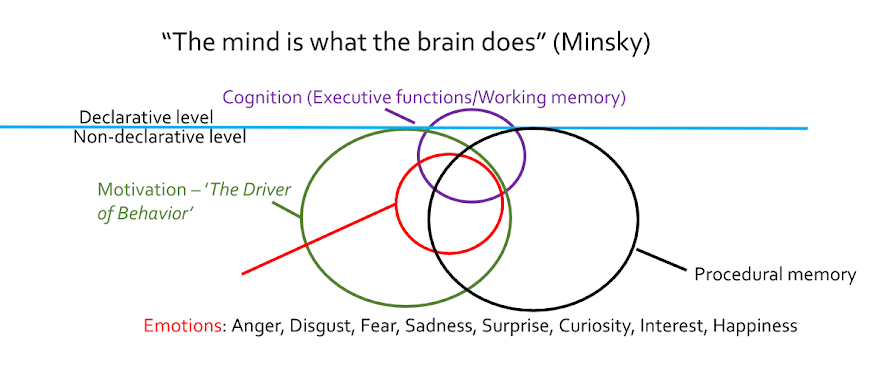Please support the blog via Swish (Sweden), MobilePay (Finland) or Wise.
“When he first drank Oatly’s oat milk, Toni recalls how he was impressed ... [by the] lack of sugar content” (CEO Magazine).Oatly produces an ultra-processed liquid that they claim could be a replacement for micronutrient-rich milk (Dehghan et al. 2018; Liebe, Hall, and White, 2020). In the pamphlet, Mr. Peterson’s Oatly claims that Finnish meat and dairy farmers are responsible for 73% of climate emissions that originate from what people in Finland eat (Note. that could mean from ultra-processed stuff like Oatly's liquid). Oatly also hints that milk is not healthy. (There’s a reference list at the end of the pamphlet but, for some reason, Mr. Peterson decided that these letters should be very, very small.)
Mr. Peterson is not only a business administrator but according to OatlyUK he has written a song all by himself. He also sings the song all by himself. The lyrics, which Mr. Peterson apparently put together all by himself, go something like this: “It’s like milk, made for humans”. Then he sort of shouts or screams “Wow!” a number of times, a bit Rock’n-Roll-ish. Check out Mr. Peterson's Wow! song for yourself.
It’s true that the color of Oatly’s ultra-processed liquid is similar to the natural product it aims to replace, but when scrutinized it seems that Mr. Peterson’s replacement product has more in common with products like Coke or beer.
Why?
Despite calling the product ‘Oat something’, only 10% of the liquid is actually oat. For a company that puts fairness first, is that really fair?
According to calculations made by science journalist Dr. Ann Fernholm, author of My Sweet heart, 41% of the oat Oatly added to the water in their replacement liquid transform into maltose (glycemic index 105!) (Öppet brev till Oatly: hur naturligt är ert socker? Och följer ni lagen?). It’s in Swedish, but the letter contains a graph showing what happens to blood sugar when you eat just oats compared to drinking Mr. Peterson’s sugary laden ultra-processed replacement liquid. There’s only one word: wow!
Dr. Fernholm’s calculations are consistent with findings by investigative journalist Joanna Blythman who found that Mr. Peterson’s replacement liquid has a 33% higher glycemic load than milk (Opinion: Joanna Blythman: Oat milk is fashionable but is the shine coming off its halo?).
It’s common knowledge that sugar and processed alternatives to real food are associated with metabolic syndrome (Yudkin, 1972/2012; Hall et al. 2019; Lustig, 2017). Just watch Dr. Robert Lustig's The bitter truth about sugar.
What about Mr. Peterson's accusation of Finnish meat and dairy farmers?
According to Mats Nylund, chairman of The Swedish agricultural producers' central organization (Svenska Lantbruksproducenternas Centralorganisation (SLC), emissions from Finnish meat and dairy constitute, not 73%, but ~50% of emissions from Finnish Food production (Agriculture that is. The remaining 23% may originate from ultra-processed stuff like Oatly's liquid.). In science, this is called a significant difference. The other half comes from plant-based food. Note. Finland's total climate emissions make out 0.13% of global ditto. The share of Finnish agriculture is ~10% of that. Mr. Nylund's claim is consistent with international research showing that milk, despite providing a number of important micronutrients, has close to no impact on the climate (Liebe, Hall, and White, 2020). Adding to that, CLEAR Center, at the University of California, Davis shows that emissions from farming circulate in something called a Biogenic carbon cycle. This means that Methane (CH4), a very potent greenhouse gas emitted by livestock, transforms into Carbon dioxide (CO2) within 10-12 years through a process called hydroxyl oxidation. The CO2 is then consumed through Photosynthesis, mostly by plants which humans can't eat, but which livestock love to munch on. The plant-based content is then upgraded/upcycled to many of the nutrients we humans need. Even Walter Willet (2014), the 'father' of nutrition epidemiology, among others, recommends two servings of full-fat milk per day.
Conclusion. Mr. Peterson’s/Oatly’s replacement stuff contains few of the micronutrients that humans need - but many of these are found in milk. Consuming Oatly's liquid will spike your blood sugar. Strange that Mr. Peterson didn't notice the rich sugar content when he tasted the product?. Is that an example of Confirmation bias? Anyway, the liquid is popular among people who worry too much about the future and consequently abstain from the food that opened the door for our species (Forestell & Nezlek, 2018; Mann, 2018; Thompson et al. 2019). Some of them follow the regime proposed by Emanuel Swedenborg (1688-1772) and later Ellen G. White (1827-1915) of the Seventh-Day Adventist Church (in context here). It's unethical to sing wow! It's like milk when the liquid to a greater extent resembles Coke or beer. Toni Peterson should be wow! enough to apologize to Finnish meat and dairy farmers and follow marketing ethics by changing the color of his Oat-liquid. For some reason, it took Oalty's people five hours to come up with a way to avoid the attitude object, instead, they went straight for defensive argumentation and polemics:

The post was originally posted on the University of Helsingfors blog for my research project (2018-2021).
Stöd gärna bloggen via Swish (Sverige), MobilePay (Finland) or Wise.
Mer om min expertis:
Executive coaching for CEOs/managers and workshops to facilitate Organizational Performance, Learning, and Creativity for Problem Solving | Lectures: Nutrition for physical and mental health | Course/lecture: children's emotional and social adjustment and cognitive development | Language training - Swedish | Academy Competency | CV | Teaching skills and experience | Summary of research project | Instagram | Linkedin | YouTube-channel | TikTok | Twitter

No comments:
Post a Comment